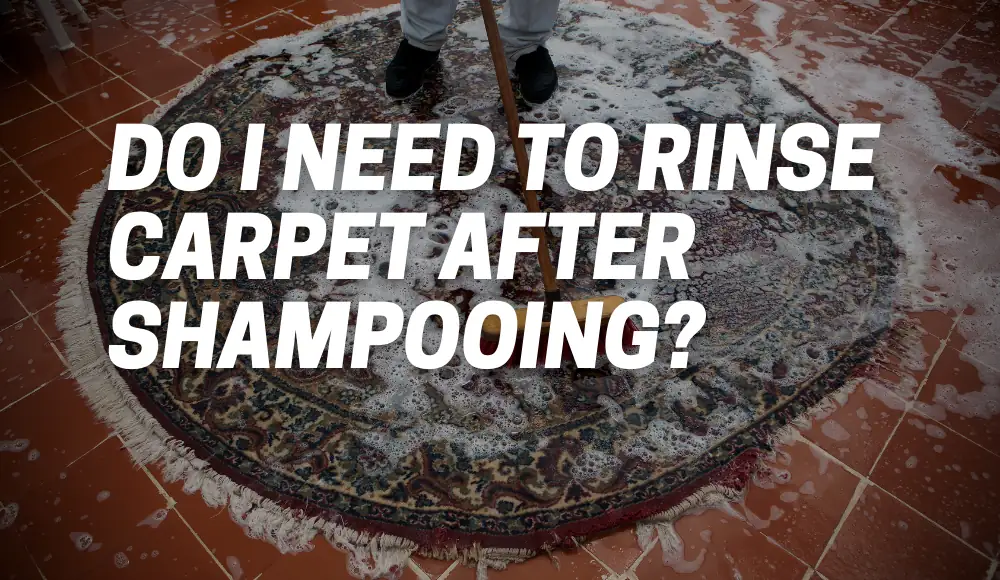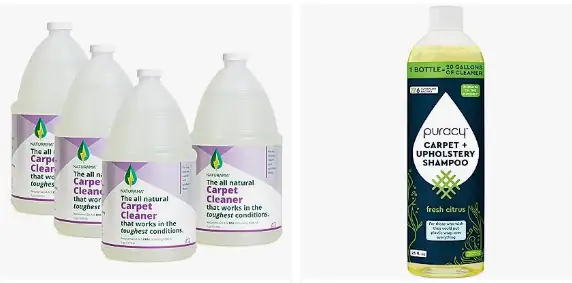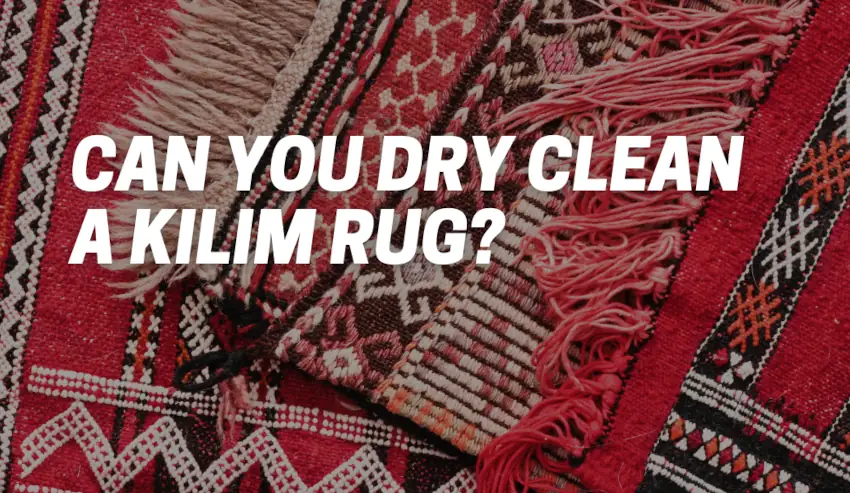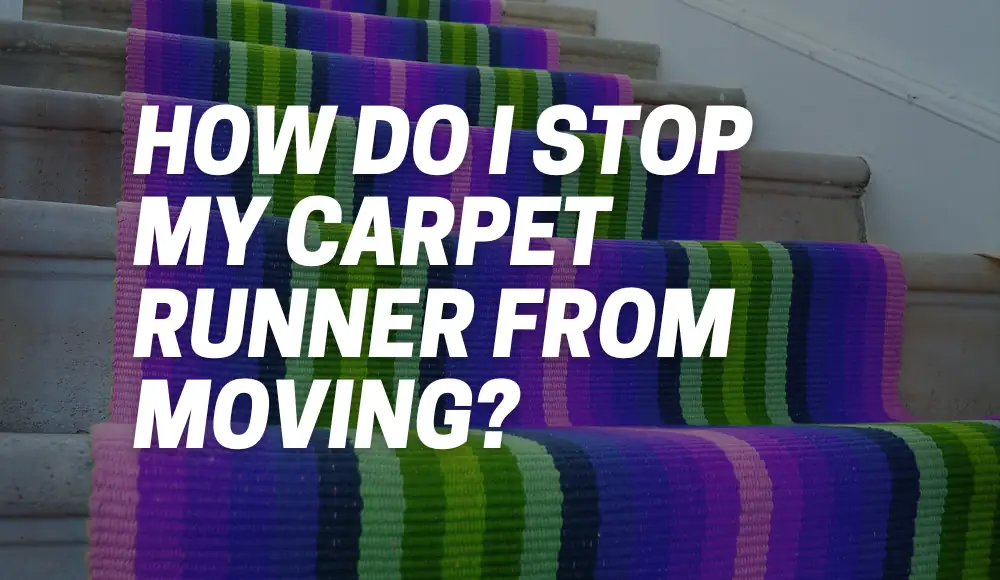Last updated on November 2nd, 2023 at 12:49 am
Carpet shampooing is an essential part of carpet maintenance, especially if you want to keep your carpets looking fresh and clean. But as a carpet owner, you may wonder, “Do I need to rinse carpet after shampooing?”
It’s a valid question, and we’re here to provide you with helpful, reliable, and people-first content that answers your query.
The Science Behind Carpet Shampooing
First things first.
Let’s delve a bit deeper into the science behind carpet shampooing. Understanding how the process works can help you make more informed decisions about maintaining your carpets.
Carpet shampooing is an effective method of deep cleaning carpets, but how does it actually work?
The cleaning agents in carpet shampoos are designed to break down and lift dirt, stains, and grime from the carpet fibers. These cleaning agents typically contain surfactants that work by reducing the surface tension between the dirt and the carpet.
How To Shampoo Your Carpet with Carpet Cleaner
—
When you apply the carpet shampoo and scrub it into the carpet, the surfactants surround and encapsulate the dirt particles.
This loosens the dirt and makes it easier to extract during the cleaning process. Once the dirt is lifted, you can either vacuum it up or leave it to dry, depending on the type of shampoo used.
On the other hand, traditional carpet shampoos may leave behind residue, which is why rinsing is recommended to remove any leftover cleaning agents.
Should You Rinse Your Carpet After Shampooing?
When it comes to carpet shampooing, the need for rinsing largely depends on the type of shampoo you use.
Some carpet shampoos are formulated to be left on the carpet without rinsing, while others require rinsing.
Let’s break down the two scenarios:
- Rinse-Free Carpet Shampoo: Some modern carpet shampoos are designed to be low-moisture and quick-drying. They are often labeled as “no-rinse” or “rinse-free” shampoos. These shampoos have special cleaning agents that do not leave behind any soapy residue, eliminating the need for rinsing. They are convenient and time-saving, making them a popular choice for busy homeowners.
- Shampoo Requiring Rinsing: On the other hand, traditional carpet shampoos may require rinsing after application. If the shampoo’s label or instructions recommend rinsing, it’s essential to follow those guidelines to prevent any residue build-up on your carpet fibers.
Tip: Always read the instructions on the carpet shampoo bottle before use to determine whether rinsing is necessary.
What Should You Do After Shampooing Your Carpet?
After you’ve shampooed your carpet, whether it’s a rinse-free or traditional shampoo, there are a few best practices to follow to ensure optimal results:
- Allow Sufficient Drying Time: If you’re using a rinse-free carpet shampoo, give your carpet enough time to dry thoroughly. Proper drying will allow the cleaning agents to work effectively and prevent any potential issues like mold or mildew growth.
- Ventilation is Key: During the drying process, ensure good ventilation in the room. Open windows and use fans to promote air circulation, speeding up the drying time and ensuring a fresh-smelling carpet.
- Spot Cleaning for Stains: If there are still some stubborn stains after shampooing, consider spot cleaning those areas using a suitable carpet stain remover. Be sure to test the product on a small, inconspicuous area first to ensure it won’t cause any discoloration.
- Regular Vacuuming: To maintain the cleanliness of your carpet, continue with regular vacuuming. Vacuuming helps remove any loose dirt or debris that may accumulate on the carpet surface over time.
Should I Rinse Carpet with Water After Shampooing? User Opinions
The question of whether to rinse carpet with water after shampooing often sparks discussions among homeowners on Reddit and forums on the Internet. Some prefer to rinse, while others skip this step.
Here are a few user opinions and perspectives:
| Point |
|---|
| When using a deep cleaning machine to clean carpets, go over the area with just water in the machine’s tank after using the cleaning solution. Repeat this process 2 or 3 times for best results. |
| Leaving soap or detergent in the carpet fibers after shampooing can attract dirt and cause the carpet to become dirty much faster than usual. |
| The lower pH of the water used in the final rinse can help extract leftover soap and cleaning solution better, leaving the carpet cleaner. |
| Be careful not to oversaturate the carpet during the rinsing process, as it may lead to mildew and odors if the carpet doesn’t dry properly. |
| Some users recommend adding a little white vinegar to the water for the final rinse to help remove more soap and reduce any vinegar smell quickly. |
| Using a natural rinsing agent after shampooing can help repel dirt and make it easier to vacuum up the loosened dirt. |
| Commercial carpet cleaners often have both wash and rinse settings, making the rinsing process more convenient. |
| Enzymatic pet odor spray can be added to the rinse water when cleaning pet stains on carpets. |
| If a carpet is left sticky after shampooing, vacuuming thoroughly and using a cleaning solution made from equal parts white vinegar and water may help. |
| To prevent sticky carpets after shampooing, use the recommended amount of cleaning solution and thoroughly rinse the carpet. Allow sufficient drying time before using the carpet again. |
Ultimately, the decision to rinse your carpet after shampooing depends on your personal preferences and the type of shampoo you use.
How to Rinse Carpet?
If you’ve determined that your carpet requires rinsing after shampooing, here’s a simple step-by-step guide on how to do it properly:
- Prepare the Rinse Water: Fill a bucket or container with clean, lukewarm water. Avoid using hot water, as it may set any remaining stains.
- Start Rinsing: Dip a clean sponge or cloth into the water, then wring it out thoroughly. Gently wipe the carpet surface, working in small sections at a time.
- Remove Excess Water: As you rinse, be cautious not to oversaturate the carpet. Use a dry, clean cloth to blot and absorb excess water as you go.
- Allow Drying: After the rinsing process is complete, allow your carpet to air dry. Open windows and use fans to promote faster drying.
Do I Need To Rinse Carpet with Vinegar?
Vinegar is a popular natural cleaning agent used in various household cleaning tasks. Some homeowners wonder if they can use vinegar as a rinse after carpet shampooing.
While vinegar can be effective in removing certain stains and odors, it’s not recommended to use it as a rinse after carpet shampooing. Vinegar is acidic, and if not properly diluted or used in the right proportion, it can damage carpet fibers or cause discoloration.
Additionally, vinegar may react with some carpet shampoos, rendering them less effective.
If you want to use vinegar for cleaning, it’s better to use it separately for spot-cleaning specific stains rather than as a rinse after shampooing.
Expert Tips for Effective Carpet Shampooing
To achieve the best results when shampooing your carpet, here are some expert tips and tricks to keep in mind:
- Pre-Vacuuming: Before shampooing, it’s essential to pre-vacuum the carpet thoroughly. Vacuuming removes loose dirt, debris, and pet hair from the carpet surface, allowing the shampoo to penetrate deep into the fibers for a more effective clean.
- Spot Test: Before applying the shampoo to the entire carpet, always perform a spot test on a small, inconspicuous area. This will help you ensure that the carpet shampoo is compatible with your carpet and won’t cause any discoloration or damage.
- Proper Dilution: If you’re using a concentrated carpet shampoo, make sure to follow the manufacturer’s instructions for proper dilution. Using an overly concentrated solution can lead to residue buildup and may be challenging to rinse off.
- Use the Right Equipment: Invest in a high-quality carpet cleaning machine or rent one from a reputable source. The right equipment will ensure thorough cleaning and efficient removal of dirt and stains.
- Uniform Application: Apply the carpet shampoo evenly, ensuring that you cover the entire carpet surface. Work in small sections to avoid missing any spots and to allow for more focused cleaning.
- Avoid Over-Wetting: Whether you’re using a rinse-free or traditional shampoo, avoid over-wetting the carpet. Excessive moisture can lead to mold and mildew growth, especially if proper drying is not facilitated.
- Drying Time: Allow ample drying time after shampooing, especially if you’ve rinsed the carpet. A well-ventilated room with good air circulation will help speed up the drying process.
- Regular Maintenance: Carpet shampooing is just one part of carpet maintenance. Regularly vacuuming your carpets and addressing spills and stains promptly will keep your carpets looking fresh and extend their lifespan.
DIY vs. Professional Carpet Shampooing
While carpet shampooing can be done as a DIY project, some homeowners may prefer to hire professional carpet cleaners. Let’s weigh the pros and cons of each approach.
DIY Carpet Shampooing:
Pros:
- Cost-Effective: DIY carpet shampooing is generally more budget-friendly than hiring professionals.
- Convenience: You can shampoo your carpets at your convenience and as frequently as needed.
- Familiarity with Cleaning Agents: You have control over the type of cleaning agents used on your carpets.
Cons:
- Equipment Limitations: Home carpet cleaning machines may not have the same power and capabilities as professional-grade equipment.
- Skill and Experience: Properly using a carpet cleaning machine requires some practice and knowledge to achieve optimal results.
- Time-Consuming: Carpet shampooing can be time-consuming, especially if you have a large area to clean.
Professional Carpet Shampooing:
Pros:
- High-Quality Results: Professional carpet cleaners have access to powerful equipment and specialized cleaning agents, delivering superior results.
- Time-Saving: Hiring professionals means you won’t have to invest time in the cleaning process.
- Expertise: Experienced carpet cleaners know how to tackle various types of stains and carpets effectively.
Cons:
- Cost: Professional carpet cleaning services can be more expensive than DIY options.
- Scheduling: You’ll need to coordinate with the cleaning company, which may not always align with your preferred timing.
A Word on Eco-Friendly Carpet Shampooing
As environmentally conscious practices become more critical, many homeowners seek eco-friendly carpet shampooing options.
If you’re concerned about the impact of traditional cleaning agents on the environment, look for eco-friendly carpet shampoos that use biodegradable and non-toxic ingredients.
Several manufacturers now offer eco-friendly carpet cleaning solutions that are just as effective as traditional shampoos. These products are free from harsh chemicals and leave behind no harmful residues, making them safer for both your family and the environment.
Before purchasing any eco-friendly carpet shampoo, check for certifications from reputable environmental organizations to ensure their authenticity.
Eco-friendly carpet shampoo
Frequently Asked Questions (FAQs)
How often should I shampoo my carpets?
The frequency of carpet shampooing depends on several factors, such as foot traffic, pets, and spills. As a general rule, high-traffic areas may require more frequent cleaning, while less-used areas can be shampooed less often. Every 6 to 12 months is a typical guideline for most households.
Can I mix different carpet shampoos together?
It’s not advisable to mix different carpet shampoos together, as they are formulated with specific ingredients and dilution ratios. Mixing them may lead to ineffective cleaning or undesirable reactions.
Can I use a steam cleaner instead of a carpet cleaning machine?
Steam cleaners are a popular alternative to carpet cleaning machines. They use hot water vapor to clean and sanitize carpets. While steam cleaning can be effective, it may not penetrate as deeply as carpet cleaning machines, especially for heavily soiled carpets.
How do I store leftover carpet shampoo?
If you have leftover carpet shampoo after cleaning, make sure to tightly seal the bottle and store it in a cool, dry place, away from direct sunlight. Proper storage will help preserve the shelf life of the product.
Conclusion
The need to rinse your carpet after shampooing depends on the type of shampoo you use. Some shampoos are formulated to be rinse-free, while others require rinsing for effective results.
Always follow the instructions provided by the manufacturer to make the right decision.
Remember to allow sufficient drying time, ensure good ventilation, and continue regular vacuuming to maintain your carpet’s cleanliness. If using Rug Doctor or other carpet cleaning machines, choose the appropriate cleaning solution and follow the recommended rinsing guidelines.
While some homeowners prefer to rinse their carpets with water after shampooing, others trust in the efficiency of rinse-free shampoos. User opinions vary, so make a choice that suits your specific needs and preferences.
Lastly, while vinegar can be a useful cleaning agent, it’s not suitable for use as a rinse after carpet shampooing. Stick to the appropriate carpet cleaning products and methods to keep your carpets looking fresh and clean. Happy carpet shampooing!




